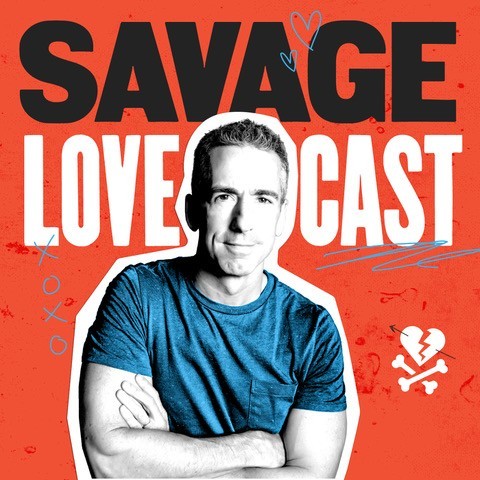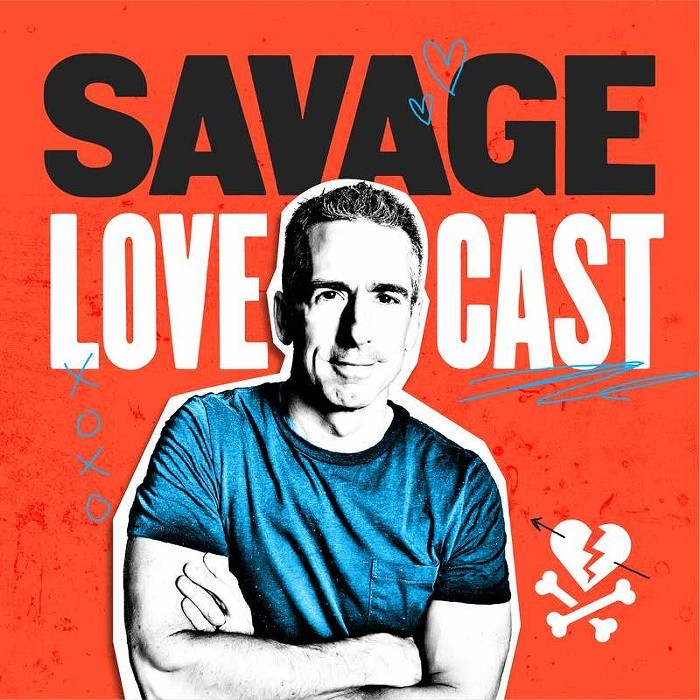Dr. David J. Ley—author (The Myth of Sex Addiction, Insatiable Wives, Ethical Porn for Dicks), clinical psychologist, blogger, and frequent Savage Love guest expert—has launched a new online video project. With #NoMoreSexShame, Dr. Ley is taking on sexual shaming and the damage it does. “I’ve spent a long time, battling the effects of sexual shame within mental health," says Dr. Ley. "What’s clear from sexual research is that it’s the shame that does damage, not the sex."
I was interviewed for #NoMoreSexShame—you can see my video here—and I interviewed Dr. Ley, via email, about his new project.
Tell me about your new project.
It's called the #NoMoreSexShame Video Series. Essentially, it's interviews of people, talking about ways in which sexual shaming has affected them, and more importantly, how they overcame it. The series is on Youtube, and contains about a dozen videos now, with more coming every week. I'd love for folks to start recording and posting their own videos, sharing their stories, so that this moves beyond just me and my work. We will also probably start editing videos down, and putting together short clips of the most powerful parts of peoples' stories.
What inspired you to create #NoMoreSexShame? And what has the response been like so far?

In your practice, in your research, how have you seen sex shame harm people?
God, this is the thing that really causes me anguish. Unfortunately, 90-95% of most licensed mental health clinicians have no training whatsoever in sexual diversity. That's stunning, and most people are surprised by it—we expect therapists to be able to talk about sex. But most can't. Then when these clinicians encounter sexual behaviors in their practice, they judge the sex, and the person, subjectively, based on their own experience and sexual interests. Basically, if you want more sex, or a different kind of sex, than your therapist does, you're at risk of being called unhealthy by them. Therapists shame people around their sexual behaviors, trying to force them into the sexual behaviors the therapist thinks, based on ignorance, are most healthy. I've even seen some clinicians who explicitly use what they call "healthy prosocial shaming" to try to force patients to change their sexual behavior, to fit the model (usually heteronormative, monogamous and sexually conservative) that the therapist naively thinks is best. This is frightening—that's morality, not medicine or effective therapy. those therapists hurt people, the very people coming to them for help.
Shame harms, shame warps—but I sometimes feel like the process of letting go of it, working through it, is so rewarding, so liberating, that it can almost feel like the shame—a little bit, not too much, not a crippling amount—was worth it. Am I nuts?
The overcoming of shame, the owning of oneself, can be an incredibly affirming event and process. Jumping that hurdle requires an existential leap of self-acceptance and personal advocacy. At core, that's what the coming out process is all about. One of the things I hear in these interviews, and the work I do, is that lots of people are now "coming out' and rejecting the shame and secrecy that has kept them in the closet about being nonbinary, being kinky, being nonmonogamous, or being asexual. We've learned a lot about overcoming shame and coming out in healthy ways, from LGBTQ experiences. Now, we can translate that other aspects of sexual experiences.
Is shame ever called for?
Shame is a social conformity tool, that tries to force everyone to fit into certain little boxes, that define who you are and how you act. With religion and morality, shame is used to make people feel bad, and be ostracized, for not being "the right way." It doesn't ever actually change what people do though. It just makes them keep the behaviors, or the desires, secret, so they don't get in trouble and get shamed and excluded. Shame ultimately leads to people feeling bad about who they are, not just what they did. That's the problem with shame. Shame becomes embedded in a person's idea of who they are, and their self-worth. So you have people with these lifelong identities of being a pervert, a faggot, a sex addict, a slut, because what they did, sexually, was shamed.
Ultimately, shame as a social tool might work, but only in larger social structure situations. So, shame might prevent some teens from having sex and getting pregnant. But, that only comes at the price of the individuals who are now lost, to depression, suicide, social exclusion. In therapy, and in mental health, where we are working with individuals, shame is never an appropriate or helpful tool.
I agree that people are often harmed by shame—by unnecessary, useless shame, by the shaming of desires that can be expressed consensually and ethically (and joyfully!). But don’t people do things they should feel ashamed of?
Perhaps—but this is a social determination. Where society at large is saying we don't like that you do this, or want to do this. And we are going to shame you for having that desire, hoping it will make you less likely to act on it.
But, consider men with sexual attraction to children. We deeply shame such men. Unfortunately, that shame actually leads to those men keeping their desire secret, hiding it, and not seeking help in how to manage it safely. Our shame of such desires actually makes it harder for people to get help for them, and ultimately makes this problem worse, and puts more children at risk. The same is true of many things, whether you are talking about thoughts of suicide, substance use, or desire for a certain kind of sex. Our fear of being shamed keeps us from admitting the desire, talking to others about it, and finding ways to negotiate it.
What about someone who doesn't just want to do something that could damage another human being, but actually does it? Molests a child. Removes a condom during intercourse. If shame isn’t constructive, or helpful, even in this context… what should that person feel? And in addition to legal sanctions, what should society at large respond with if not shame?
We condemn such behavior and should. Violations of sexual consent are hideous and damaging crimes. But, at the same time, we, as society, need to be pragmatic if we want to protect people from such victimization. When we shame, we are basically telling the perpetrators that they are irredeemable. That may satisfy our anger, but it doesn't reduce the likelihood of the behavior recurring. Instead, when we shame people, it makes them more angry, isolated, and less caring about other people.
When I first went into this, I was worried there could be a rapist or something, saying how they aren't ashamed of being a rapist anymore. That would be awful, but it would miss the point. And let's be real—our President admitted to violating sexual consent—I don't think we can argue that rapists are shamed, to the degree that gays, sluts, kinksters, or swingers are. Most of the sexual behaviors that are shamed are behaviors that are consensual, but socially stigmatized. #Nomoresexshame is about embracing sexual health, and rejecting the socially biased shaming culture that condemns consensual, healthy behaviors, just because someone somewhere decided they didn't like them.
What we need to do, is to focus more on the behaviors, and the values that contribute to those behaviors. Teaching people to prioritize consent, healthy relationships, and communication is how we help people build healthier relationships, where they can seek help with the aspects of sexuality that we all fear and struggle with. That's what draws me to this project. It allows us to start sharing with each other openly, the things that we have struggled with, and how we overcame them, in the process of becoming healthier people.


















